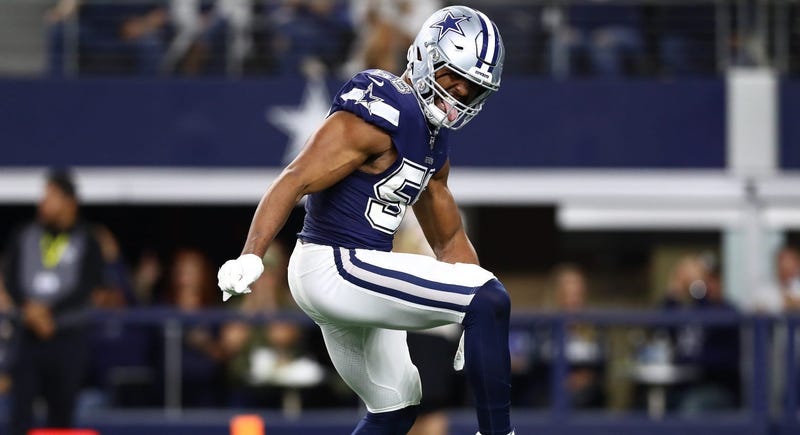
(670 The Score) As a member of the Los Angeles Rams in 2016, veteran pass rusher Robert Quinn raised his fist in protest during the national anthem as part of Colin Kaepernick's movement taking a stand against racial injustice and police brutality. When Quinn arrived in Miami two seasons later, he continued on.
But Quinn, a black man, didn't protest while playing for Dallas in 2019. He felt the circumstances were different with the Cowboys, whose owner Jerry Jones once said he wouldn't tolerate players "disrespecting" the American flag.
"I had people come to me that said before I even went to the Cowboys that I’m messing up my money by protesting -- people that looked like me," Quinn said on a teleconference Thursday. "So the fact that I went to the Cowboys, it was more peace of mind, either you can face reality of trying to make change in America or you can worry about messing up your money. The fact that I had that situation, it kind of hurt me, honestly."
The 30-year-old Quinn has felt that frustration in recent weeks after the killing of George Floyd at the hands of Minneapolis police on May 25. He reflected on how actions like raising a fist or taking a knee were considered "disrespectful" by Jones and many Americans and how the meaningful message was being missed.
Now a member of the Bears, Quinn has found what he views as a more welcoming environment. He appreciates the open dialogue within the team as it embraces difficult-but-necessary conversations.
Quinn isn't sure how or in what way he will protest this season.
"We’re still protesting and arguing about the same thing," Quinn said. "You know? I look at myself in the mirror every day and I see people like me being harassed for absolutely no reason. So, the simple fact that now for whatever reason the message is trying to be, I guess, more pushed, to me, it’s very frustrating. Because there have been so many lives lost through the years that people have just swept under the rug. I’m sorry, it’s frustrating."
As protests took place across the country recently, the Bears used their allotted two hours of meeting time as part of OTAs one day to open up a conversation between players, coaches and team executives about racial injustice. It was an emotional experience and one considered important by its participants. The Bears canceled their meetings a day later in observation of "Blackout Tuesday," a day meant for mourning lives lost like Floyd's and for acknowledging racial injustice.
In his short time with Chicago, Quinn has seen the Bears operate differently than the Cowboys. He believes the Bears are willing to create a culture open to different opinions, and he views these discussions as just the start of creating change.
"We as players have a really strong voice, but the Bears, as an organization with the players, have an even stronger voice to try to make change," Quinn said. "It's not just one player, one conversation. It's everyone looking at themselves in the mirror individually and realizing where we are at fault.
"At the end of the day, no one is better than the next man to the left or the right, no matter what our indifference is. Until we realize that and quit thinking we're the greatest person ever, nothing would ever change.
"It's welcoming and heartwarming to have an organization that supports you and supports your situation. Basically, we're trying to get more awareness out there."
